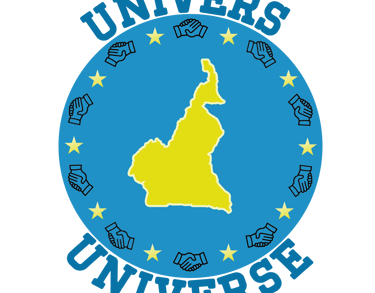Chapter 10 – On the Fight Against the Embezzlement of Public Funds


Embezzlement of public funds or other public assets is an illegal operation that consists of using resources belonging to the collective for purposes other than those for which they were intended. In Cameroon, most embezzlement of public wealth is committed by civil servants for personal enrichment. Public funds thus end up becoming part of the official’s personal assets. A study revealed that, between 1997 and 2021, over 8,000 billion CFA francs in public funds were embezzled in Cameroon—a sum greater than the annual state budget.
Multiple methods are used by those who engage in embezzlement. Direct embezzlement occurs when the holder of public funds pockets the money instead of depositing it in the state treasury, using it for personal purposes. More commonly, embezzlement is indirect. For example, public contracts are awarded but never executed, even though the funds are disbursed. Another method involves paying salaries to ghost workers—people who do not exist. Even public goods, both movable and immovable, are not safe.
Regarding movable assets, many senior officials, upon being appointed to key positions, replace all the furniture in their departments. The old furniture often ends up in private homes. On the real estate front, state-owned land is sold off at ridiculously low prices to relatives, friends, and associates of the officials managing them. Land expropriation procedures and land classification for public use are also used to divert assets. Typically, larger plots than necessary are acquired by the state. Once the project is completed, leftover land—already paid for by the state—is seized by officials and absorbed into their private assets.
Embezzlement can be countered through good governance, which requires strict discipline and moral standards in public affairs. Meanwhile, the UNIVERS Party has identified several subtle techniques used for embezzlement, and proposes concrete solutions to neutralize them. These include practices involving "mission expenses," "seminars" and "workshops," "fuel lines," and "service vehicles."
1° - The Practice of Mission Expenses
The Technique
In many Cameroonian public administrations, the budget line for mission expenses is significantly inflated during budget preparation. To consume these funds, mission orders are issued for officials to travel domestically or abroad for fictitious activities. These officials collect mission fees without ever leaving their homes. In some cases, large delegations are sent abroad for tasks that require no travel, racking up expenses paid by the state.
The sports sector is a prime example. Days before a sports delegation travels, many officials leave the country under the pretext of finding accommodations, a task that could be handled by the local Cameroonian embassy. The delegation leaving Cameroon often includes more officials than actual athletes—sometimes ten or twenty times more. Some officials have built their wealth from such fictitious missions.
The Solution
The UNIVERS Party proposes the implementation of real oversight on the necessity and authenticity of official missions. Each delegation member must justify their presence with a concrete task that cannot be handled by the local embassy staff.
2° - Seminars and Workshops
The Technique
This one's simple: when a department head wants to distribute money to themselves and their collaborators, they organize a “seminar” or “workshop.” All participants are handsomely paid. Such events multiply throughout the fiscal year as a way to exhaust budget lines that were intentionally inflated.
The Solution
The UNIVERS Party proposes ending the practice of paying participants in such events, as they have become key hotspots for the embezzlement of public funds.
3° - Fuel Lines
The Technique
Some public services without any vehicles still allocate budget lines for fuel. By year’s end, these lines are fully used—clear evidence of embezzlement. In other services, fuel allocations far exceed what is needed based on the number of vehicles and realistic operational use. This fuel, meant for public service, is diverted by those managing it.
The Solution
The UNIVERS Party proposes that each public administration using service vehicles should submit daily, weekly, or monthly activity reports for those vehicles. Each fuel voucher must include the license plate number of the corresponding vehicle. Gas station attendants must ensure that the fuel goes into the correct vehicle. Any attendant who serves fuel to an unauthorized vehicle will be considered complicit in embezzlement.
4° - Service Vehicles
The Technique
Some public administrations purchase vehicles they don’t actually need. These vehicles are then assigned to officials for personal use. After a while, they are declared “fully depreciated” and are sold at very low prices to their users. This is how public funds are embezzled through the purchase of so-called “service vehicles.”
The Solution
The UNIVERS Party intends to enforce existing regulations stipulating that a service vehicle must be used exclusively for public service purposes. The purchase must be justified by genuine operational needs. Once acquired, the vehicle is assigned to a state-employed driver, who is the only person authorized to drive it—not the official managing it. When not in use, the vehicle must be parked at the service premises, not at the official's private residence. Only those on official mission should ride in a service vehicle. The difference between a “service vehicle” and a “company car” must be ingrained in the culture of Cameroonian public servants.
